Fall 2022

ISLAND PRESS, a nonprofit organization founded in 1984, works to provide the best ideas and information to those seeking to understand and protect the environment and create solutions to its complex problems.
With the help of people like you, we work to ensure that solutions to tough environmental problems reach people who can put them into action. Give a gift today and help us make an impact. Find us at islandpress.org/donate or call Meredith Harkel, Development Director, at (202) 232-7933 ext. 33.

ISLAND PRESS BOARD OF DIRECTORS
David Bland
Washington, DC
Margot Ernst
New York, NY
Allison Greenberg
Washington, DC
Rob Griffen (Chair)
Washington, DC
Marsha Maytum
San Francisco, CA
David Miller (President)
Washington, DC
Alison Sant
San Francisco, CA
Caelan Hidalgo Schick (Student Director)
Pittsburgh, PA
Sandra E. Taylor
Washington, DC
Deborah Wiley (Secretary & Treasurer)
New York, NY
Anthony A. Williams
Washington, DC
Sally Yozell
Washington, DC
Cover photo: From Chris McLaughlin’s The Good Garden
For more information about Island Press or to place an order, visit www.islandpress.org.
Island Press books can be purchased from independent bookstores and Bookshop.org. Over 500 Island Press titles are available in electronic format through all major e-book retailers, including: Amazon, Barnes & Noble, Google, Apple, and Kobo.
Connect with us on Facebook.com/IslandPress.

Follow us on Twitter @IslandPress to get the latest news and updates.



Browse our books and check out the Island Press Field Notes blog at islandpress.org/blog.
Find us on Medium at medium.com/island-press.

In 2013 Island Press launched the Urban Resilience Project with the support of The Kresge Foundation and The JPB Foundation. The project is working to imagine and inspire the sustainable, equitable, resilient cities of the future.
Connect with the Urban Resilience Project at islandpress.org/urp .
Island Press www.islandpress.org 800•621•2736 C A Poison Like No Other 1 The Good Garden 2 Sundressed 3 Understanding Disaster Insurance 4 The Progress Illusion 5 Roadways for People 6 White Pine 7 Justice and the Interstates 8 Swamplands 9 Thicker Than Water 10 American Urbanist 11
Fall/Winter 2022
Matt Simon
A Poison Like No Other
How Microplastics Corrupted Our Planet and Our Bodies
A Poison Like No Other reveals the emerging health threat of microplastics and how ubiquitous they have become.
It’s falling from the sky and is in the air we breathe. It’s in our food, our clothes, and our homes. It’s microplastic and it’s everywhere— including our own bodies. Scientists are just beginning to discover how these tiny particles threaten health, but the studies are alarming.
A Poison Like No Other is the first book to fully explore this new dimension of the plastic crisis. Matt Simon follows the intrepid scientists who travel to the ends of the earth and the bottom of the ocean to understand the consequences of our dependence on plastic. Unlike other pollutants that are single elements or simple chemical compounds, microplastics represent a cocktail of toxicity linked to diseases ranging from diabetes to cancer.

There is no easy fix, Simon warns. But we will never curb our plastic addiction until we begin to recognize the invisible particles all around us.

Science/Environmental Science
October 2022.
Hardcover | $30.00 | 978-1-64283-235-8
E-book | $29.99 | 978-1-64283-236-5
224 pages. | 6 x 9
Island Press Trade
Matt Simon is a science journalist at Wired magazine, where he covers the environment, biology, and robotics. He’s the author of two previous books, Plight of the Living Dead: What Real-Life Zombies Reveal About Our World—and Ourselves and The Wasp That Brainwashed the Caterpillar: Evolution’s Most Unbelievable Solutions to Life’s Biggest Problems. He enjoys long walks on the beach and trying not to think about all the microplastics there.
Author’s residence: San Francisco, California
Of related interest
Thicker Than Water
Erica Cirino
Plastic Soup
Michiel Roscam Abbing

Island Press www.islandpress.org 800•621•2736 1 New
Gardening/General
Nature/Environmental Conservation & Protection
February 2023.
Paperback | $35.00 | 978-1-64283-215-0
E-book | $34.99 | 978-1-64283-216-7
320 pages. | 8 x 10 | 150 color photos and illustrations.
Island Press Trade
Chris McLaughlin
The Good Garden
How to Nurture Pollinators, Soil, Native Wildlife, and Healthy Food—All in Your Own Backyard
A fun, detailed guide to making your patch of Earth healthy, happy, and sustainable.
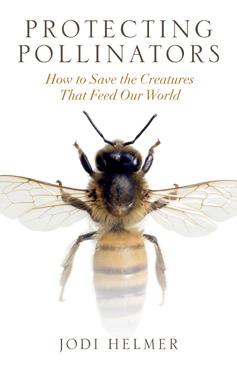
What makes a garden good? For Chris McLaughlin, it’s about growing healthy, scrumptious fruits and veggies, but it’s also about giving back. How can your little patch of Earth become a sanctuary for threatened wildlife, sequester carbon, and nurture native plants?
In this joyful guide, McLaughlin gives you all the tricks and tips you need to grow the sustainable garden of your dreams. Gardeners will learn the fundamentals, including how to choose the right plant varieties for their microclimate, and proven methods to fight pests without chemicals. You’ll also discover the nuances of developing a green thumb, from picking species to attract specific types of pollinators to composting techniques based on time available. A good garden offers endless possibilities and The Good Garden offers a wealth of knowledge and inspiration.

Of related interest
Wild By Design
 Margie Ruddick
Margie Ruddick
Chris McLaughlin has been gardening and studying plants for over thirty-five years. She’s the author of eight previous books: The Complete Idiot’s Guide to Composting , The Complete Idiot’s Guide to Heirloom Vegetables , Hobby Farms: Small-Space Rabbit Keeping , The Complete Idiot’s Guide to Small-Space Gardening , Vertical Vegetable Gardening, A Garden to Dye For , Growing Heirloom Flowers , and Raising Animals for Fiber.
Protecting Pollinators
Jodi Helmer
Author’s residence: Shingle Springs, California
Island Press www.islandpress.org 800•621•2736 2 New
Lucianne Tonti
Sundressed
Natural Fabrics and the Future of Clothing
Can fashion be both beautiful and sustainable? The answer is yes--and this book shows fashion lovers and environmentalists alike how.
For conscious consumers, buying clothes has never been more complicated. Even as fashion brands tout their sustainability, the industry is plagued by pollution, waste, and poor working conditions. If our clothes reflect our values, is it possible to be truly well-dressed?
Sustainable fashion journalist Lucianne Tonti answers with a resounding yes. Beautiful clothes made from natural fabrics including cotton, wool, flax, and cashmere can support rural communities an d regenerate landscapes. They can also reduce waste—but only if we invest in garments that stand the test of time rather than chasing fast fashion trends.
Sundressed is an exploration of a revolution taking place in fashion. And it is a love letter to clothing that embodies beauty and value, from farm to closet.

Design/Fashion & Accessories
January 2023.
Hardcover | $29.00 | 978-1-64283-271-6
E-book | $28.99 | 978-1-64283-272-3
240 pages. | 6 x 9 |
Island Press Trade
World excluding Australia/New Zealand
Of related interest
A Good Drink
Shanna Farrell
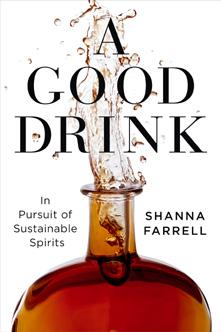
Lucianne Tonti has worked in fashion in Melbourne, Sydney, London, and Paris since 2008. In 2020 she launched the sustainable fashion site Prelude, profiled in Vogue. Lucianne holds a Bachelor of Communication, a Juris Doctorate, and a Postgraduate Diploma in Political Science. Her writing appears in The Guardian and she is the fashion editor of The Saturday Paper.
Author’s residence: Lower Templestowe, Victoria, Australia
Tech to Table
 Richard Munson
Richard Munson
Island Press www.islandpress.org 800•621•2736 3 New
Social Science/Disasters & Disaster Relief October 2022.
Paperback | $35.00 | 978-1-64283-225-9
E-book | $34.99 | 978-1-64283-226-6
232 pages. | 6 x 9 | 6 photos and illustrations. Island Press Short
Carolyn Kousky
Understanding Disaster Insurance
New Tools for a More Resilient Future
An accessible introduction to disaster insurance and risk markets that will clarify these important resources for professionals working in resiliency and disaster recovery.
The frequency and intensity of natural disasters is on the rise. Insurance, an often confusing and unpopular tool, will be critical to successfully emerging from the effects of these crises. Understanding Disaster Insurance provides an accessible introduction to the complexities—and exciting possibilities—of risk transfer markets in the U.S. and around the world. Carolyn Kousky, a leading researcher on disaster risk and insurance, explains how traditional insurance markets came to be structured and why they fall short in meeting the needs of a world coping with climate change. She then offers rea listic, yet hopeful, examples of new approaches.

Understanding Disaster Insurance is a useful guidebook for policymakers, innovators, students, and other decision makers working to secure a resilient future–and anyone affected by wind , fire, rain, or flood.
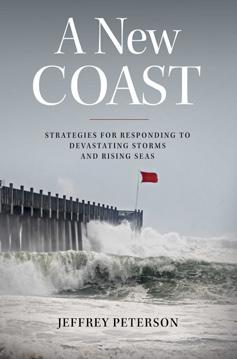
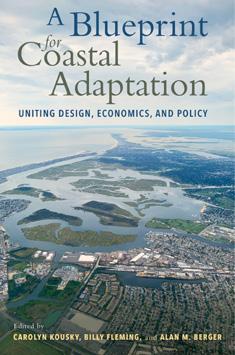 Edited by Carolyn Kousky, Billy Fleming, and Alan M. Berger;
Jeffrey Peterson
Edited by Carolyn Kousky, Billy Fleming, and Alan M. Berger;
Jeffrey Peterson
Carolyn Kousky is Executive Director of the Wharton Risk Management and Decision Processes Center at the University of Pennsylvania. Dr. Kousky has written extensively on the economics and policy of natural disasters, disaster insurance market, and climate risk management policies. She is routinely cited in media outlets including NPR, The New York Times, The Washington Post, and others. Dr. Kousky is a University Fellow at Resources for the Future and a non-resident scholar at the Insurance Information Institute. She is vice-chair of the California Climate Insurance Working Group. She has a BS in Earth Systems from Stanford University and a PhD in Public Policy from Harvard University.
Author’s residence: Philadelphia, Pennslyvania
Island Press www.islandpress.org 800•621•2736 4 New A New Coast
Of related interest A Blueprint for Coastal Adaptation
Jon D. Erickson
The Progress Illusion
Reclaiming Our Future from the Fairytale of Economics
Boldly envisions a new, socially just, and sustainable approach to economics, bringing the concepts of ecological economics to a mainstream audience.
We live under the illusion of progress: as long as GDP is going up and prices stay low, we accept poverty and pollution as unfortunate but inevitable byproducts of a successful economy. How did we all been duped into believing the fairytale of economics?
In The Progress Illusion, Jon Erickson charts the rise of the economic worldview and its infiltration into our daily lives as a theory of everything. Drawing on his experience as a young economist inoculated in the go-go 1980’s era of “greed is good,” Erickson shows how flawed economic thinking shaped our politics and determined the course of American public policy.

While the history of economics is dismal indeed, Erickson is part of a vigorous reform effort grounded in the realities of life on a finite planet. Crafting a new economic story, he shows, is the first step toward turning away from endless growth and towards enduring prosperity.
Business & Economics/Environmental Economics
December 2022.
Paperback | $32.00 | 978-1-64283-252-5
E-book | $31.99 | 978-1-64283-253-2
232 pages. | 6 x 9 |
Island Press Trade
Jon D. Erickson is the Blittersdorf Professor of Sustainability Science and Policy at the University of Vermont, faculty member of the Rubenstein School of Environment and Natural Resources, and Fellow of the Gund Institute for Environment. His previous coauthored and edited books include Sustainable Wellbeing Futures, The Great Experiment in Conservation, Ecological Economics of Sustainable Watershed Management, Frontiers in Ecological Economic Theory and Application, and Ecological Economics: A Workbook for Problem-Based Learning>.
Author’s residence: Ferrisburgh, Vermont
Of related interest
The Cartoon Introduction to Climate Change, Revised Edition

Yoram Bauman and Grady Klein
Ecological Economics, Second Edition
Herman E. Daly and Joshua Farley

Island Press www.islandpress.org 800•621•2736 5 New
Transportation/General December 2022.
Paperback | $32.00 | 978-1-64283-223-5
E-book | $31.99 | 978-1-64283-224-2
244 pages. | 6 x 9 | 27 photos and illustrations.
Island Press Short
Lynn Peterson with Elizabeth Doerr
Foreword by Janette Sadik-Khan
Roadways for People
Rethinking Transportation Planning and Engineering
Real-world advice for planners and engineers hoping to implement transportation projects that serve people, not cars.
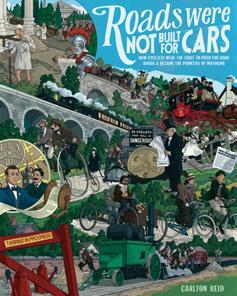

The car-only approach in transportation planning and engineerin g has led to the construction of roadways that have torn apart and devalued communities, especially Black and Brown communities. Forging a new path and working to repair this damage requires a community solutions-based approach to planning, designing, and building our roadways. In Roadways for People , Lynn Peterson draws from her personal experience and conversations with leaders in the field to showcase new possibilities within transportation engine ering and planning. The community solutions-based approach moves away from the narrow standards of traditional transportation projects and focuses instead on a process that involves consistent feedback, learning loops, and meaningful and regular community engagement.
Roadways for People is written to empower professionals and policymakers to create transportation solutions that serve people rather than cars.
 Todd Litman
Todd Litman
Lynn Peterson is currently the Oregon Metro Council President, leading the nation’s only elected regional government, which oversees regional affordable housing, parks, tourism and cultural venues, garbage and recycling, and, of course transportation and land use planning.
Authors’ residences: Lake Oswego, Oregon
Carlton Reid
Island Press www.islandpress.org 800•621•2736 6 New Roads Were Not Built for Cars
Of related interest New Mobilities
John Pastor
White Pine
The Natural and Human History of a Foundational American Tree
Readers embark on a journey through the natural and human history of the white pine, guided by a warm and enthusiastic narrative.
America was built on white pine. From the 1600s through the Civil War and beyond, it was used to build the nation’s ships and houses, barns, and bridges. It became a symbol of independence, adorning the Americans’ flag at Bunker Hill, and an economic engine, generating three times more wealth than the California gold rush. Yet this popularity came at a cost: by the end of the 19th century, clear-cutting had decimated much of America’s white pine forests. In White Pine: The Natural and Human History of a Foundational American Tree , ecologist and writer John Pastor takes readers on walk through history, connecting the white pine forests that remain today to a legacy of destruction and renewal. Weaving together cultural and natural history with a keen naturalist’s eye, Pastor celebrates the way humans are connected to the forest—and to the larger natural world.
Science/Natural History
January 2023.
Paperback | $30.00 | 978-1-64283-141-2
E-book | $29.99 | 978-1-64283-142-9

276 pages. | 6 x 9 | 12 illustrations. Island Press Trade
Of related interest
What Should a Clever Moose Eat?
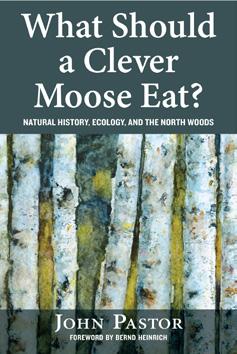 John Pastor
John Pastor
John Pastor is an ecologist and Professor Emeritus at the University of Minnesota, Duluth, where his teaching and research focused on the natural history and ecology of northern ecosystems. He is the author of What Should a Clever Moose Eat? and Mathematical Ecology of Populations and Ecosystems , is co-editor of Large Mammalian Herbivores , Ecosystem Dynamics , and Conservation , and has authored or coauthored 22 book chapters and over 120 papers, mostly about the North Woods. He is a past cochair of the Natural History Section of the Ecological Society of America and founding editor of “The Scientific Naturalist” series in the journal Ecology

Author’s residence: Duluth, Minnesota
Rainforest
Tony Juniper
Island Press www.islandpress.org 800•621•2736 7 New
Social Science/Sociology/Urban
January 2023.
Paperback | $29.00 | 978-1-64283-261-7
E-book | $28.99 | 978-1-64283-262-4
244 pages. | 6 x 9 | 35 photos and illustrations. Island Press Short
Edited by Ryan Reft, Rebecca C. Retzlaff, and Amanda K. Phillips de Lucas

Justice and the Interstates
The Racist Truth about Urban Highways
This edited volume provides an in-depth examination of the ways that the U.S. highway system has harmed Black, Brown, and poor communities, and offers ideas for paths to address this history.
Justice and the Interstates , edited by Ryan Reft, Amanda Phillips de Lucas, and Rebecca Retzlaff, examines the toll that the construct ion of the U.S. Interstate Highway System has taken on vulnerable communities over the past seven decades, details efforts to restore the same, often segregated communities, and makes recommendations for moving forward.

Justice and the Interstates provides community advocates, transportation planners, engineers, historians, and policymakers with a concise but in-depth examination of the damages wrought by highway construction on the nation’s communities of color—from West Baltimore to Birmingham to the San Gabriel Valley. The authors provide a way forward to both address this history and reconcile it with current practices.
Of related interest
Revolutionary Power
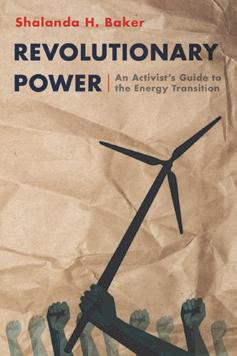 Shalanda H. Baker
Shalanda H. Baker
Ryan Reft is a historian of the Modern U.S. in the Manuscript Division at the Library of Congress. Since 2017, He has worked as senior co-editor of the Urban History Association’s blog, The Metropole
Amanda Phillips de Lucas is a social scientist and environmental historian. She studies infrastructure, highways, environmental justice, and social movements.
Angie Schmitt, foreword
by Charles T. Brown
Rebecca Retzlaff is a professor in the Community Planning Program and director of the Academic Sustainability Program at Auburn University. She formerly worked as a planner with the City of Detroit and in the Research Department of the American Planning Association
Editors’ residences: Washington, D.C.
Island Press www.islandpress.org 800•621•2736 8 New
of Way
Right
Edward Struzik
Swamplands
Tundra Beavers, Quaking Bogs, and the Improbable World of Peat
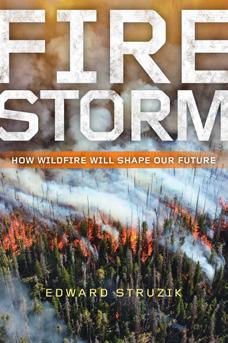

An ode to the strangely beautiful and underappreciated peatlands of the world - and a call to understand their vital role in fighting climate change.
In a world filled with breathtaking beauty, we have often overlooked the elusive magic of certain landscapes. A cloudy river flows into an Arctic wetland where sandhill cranes and muskoxen dwell. Further south, cypress branches hang low over dismal swamps. Places like these—collectively known as swamplands or peatlands—often go unnoticed for their ecological splendor. They are as globally significant as rainforests and have an important role to play in addressing climate change, yet, because of their reputation as wastelands, they are being systematically drained and degraded.
Swamplands celebrates these wild places, as journalist Edward Struzik highlights the unappreciated struggle to save peatlands by scientists, conservationists, and landowners around the world. An ode to peaty landscapes in all their offbeat glory, the book is also a demand for awareness of the myriad threats they face. It inspires us to see the beauty and importance in these least likely of places. Our planet’s survival might depend on it.
Nature/General
August 2022.
Paperback | $27.00 | 978-1-64283-290-7
312 pages. | 6 x 9 | 8 photos, 7 illustrations. Island Press Trade
Of related interest Firestorm
Edward Struzik
Edward Struzik has been writing about scientific and environmental issues for more than 30 years. A fellow at the Institute for Energy and Environmental Policy at Queen’s University in Kingston, Canada, his numerous accolades include the prestigious Atkinson Fellowship in Public Policy and the Sir Sandford Fleming Medal, awarded for outstanding contributions to the understanding of science. His books include Future Arctic, Arctic Icons, The Big Thaw, Northwest Passage, Firestorm, and Swamplands. He is an active speaker and lecturer, and his work as a regular contributor to Yale Environment 360 covers topics such as the effects of climate change and fossil fuel extraction on northern ecosystems and their inhabitants.
Author’s residence: Edmonton, Alberta, Canada
Future Arctic Edward Struzik

Island Press www.islandpress.org 800•621•2736 9 New in Paperback
Nature/Environmental Conservation & Protection
September 2022.
Paperback | $23.00 | 978-1-64283-289-1
272 pages. | 6 x 9 | 20 illustrations.
Island Press TradeIsland Press Trade
Erica Cirino
Thicker Than Water
The Quest for Solutions to the Plastic Crisis
A global tour of the plastic pollution crisis, with cutting-edge research demonstrating the depth of the problem, and what must happen to reverse it.
Much of what you’ve heard about plastic pollution may be wrong. Instead of a great island of trash, the infamous Great Pacific Garbage Patch is made up of manmade debris spread over hundreds of miles of sea—more like a soup than a floating garbage dump. Less than nine percent of the plastic we create is reused, and microplastic fragments are found almost everywhere, even in our bodies. In Thicker Than Water: The Quest for Solutions to the Plastic Crisis , journalist Erica Cirino brings readers on a globe-hopping journey to meet the scientist s and activists telling the real story of the plastic crisis. New technologies and awareness bring some hope, but Cirino shows that we can only fix the problem if we begin to repair our throwaway culture.
Thicker Than Water is an eloquent call to reexamine the systems churning out waves of plastic waste.

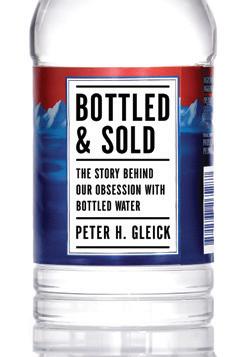

Of related interest
Plastic Soup
Michiel Roscam Abbing
Erica Cirino is a science writer and artist who explores the intersection of the human and nonhuman worlds. Her photographic and written works have appeared in Scientific American, The Guardian, VICE, Hakai Magazine, The Atlantic, and other esteemed publications. She is a recipient of fellowships from Woods Hole Oceanographic Institution, Craig Newmark Graduate School of Journalism at CUNY, and Safina Center, as well as several awards for visual art.
Author’s residence: Long Island, New York
Peter H. Gleick
Island Press www.islandpress.org 800•621•2736 10 New in Paperback
Bottled and Sold
Richard K. Rein
American Urbanist
How William H. Whyte’s Unconventional Wisdom Reshaped Public Life
The first biography of William H. Whyte, an eclectic thinker who reshaped American public life, including cities, open spaces, and corporations.
American Urbanist shares the remarkable life and wisdom of William H. Whyte, whose advocacy reshaped many of the places we know and love today—from New York’s bustling Bryant Park to preserved forests and farmlands around the country. Over his five decades of research and writing, his wide-ranging work changed how people thought about careers and companies, cities and suburbs, urban planning, open space preservation, and more. In a time when most Americans were eager to fit in, he advocated for oddball ideas and unconformity. His ideas influenced everything from corporate hiring practices to designs of city plazas. “We need the kind of curiosity that blows the lid off everything,” he once said. This fascinating biography offers a rare glimpse into the mind of an iconoclast whose healt hy skepticism of the status quo can help guide our efforts to creat e the kinds of places we want to live in today.

Biography & Autobiography/Social Scientists & Psychologists
January 2023.
Paperback | $27.00 | 978-1-64283-288-4

352 pages. | 6 x 9 | 14 photos. Island Press Trade
Of related interest
DIY City
Hank Dittmar
After a reporting career that included stops at Time Magazine and People, Richard K. Rein launched a nationally acclaimed weekly newspaper, U.S. 1, that helped the Princeton-Route 1 corridor become more than an “edge city.” Rein now serves on Princeton Future, a nonprofit that promotes sustainable urbanism in his hometown.
Author’s residence: Princeton, New Jersey
Urban Acupuncture
Jaime Lerner

Island Press www.islandpress.org 800•621•2736 11 New in Paperback
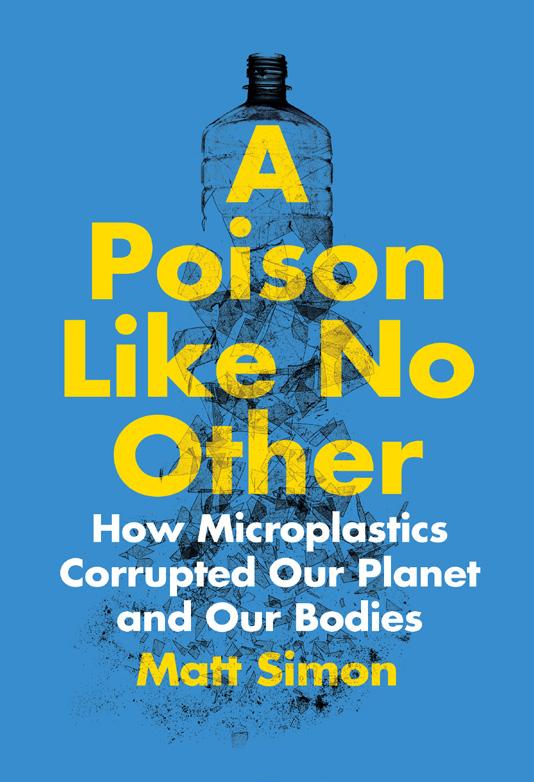
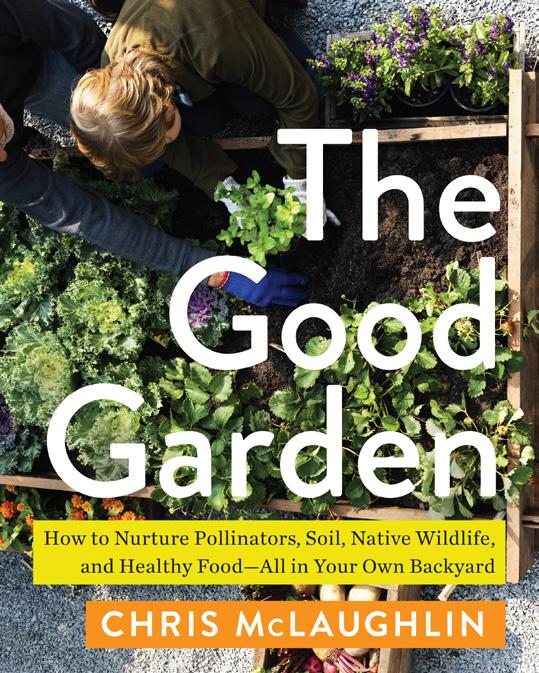


Island Press www.islandpress.org 800•621•2736 12 Non Profit Organization U.S. Postage PAID Center for Resource Economics 700 12th Street NW Suite 700 PMB 95497 Washington, DC 20005-4052 p. 202.232.7933 • f. 202.234.1328 Visit our website! islandpress.org Call 1.800.621.2736 A Poison Like No Other by Matt Simon Page 1 The Good Garden by Chris McLaughlin Page 2 Understanding Disaster Insurance by Carolyn Kousky Page 4 White Pine by John Pastor Page 7











 Margie Ruddick
Margie Ruddick


 Richard Munson
Richard Munson


 Edited by Carolyn Kousky, Billy Fleming, and Alan M. Berger;
Jeffrey Peterson
Edited by Carolyn Kousky, Billy Fleming, and Alan M. Berger;
Jeffrey Peterson





 Todd Litman
Todd Litman

 John Pastor
John Pastor



 Shalanda H. Baker
Shalanda H. Baker












